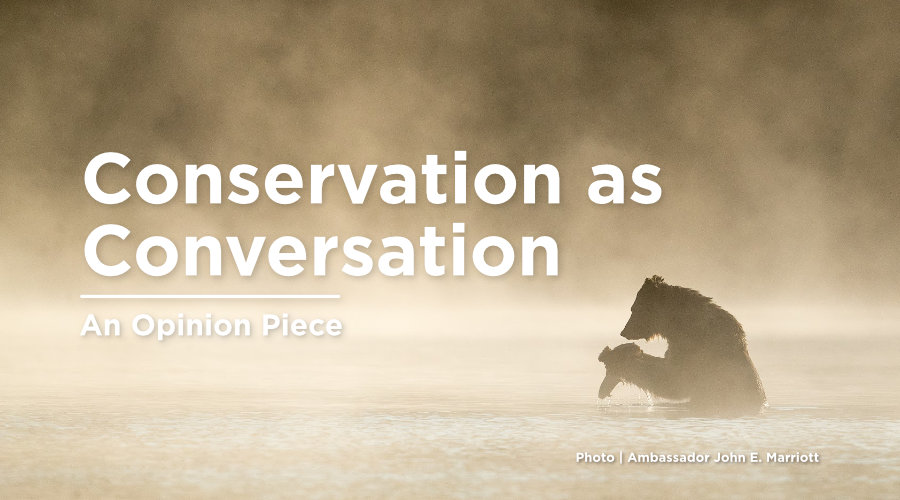
Progress is rarely tidy in the world of conservation.
This month brought quiet but important steps forward, including a win for U.S. wolves, the successful rehoming of orphaned cougar kittens, and meaningful recognition of EWC’s advocacy efforts. In contrast, troubling setbacks in Alberta are cause for renewed urgency, as recent changes to wildlife management threaten ecosystems and public trust.
These developments make it clear that inclusive conversation and steady, science-based advocacy matter now more than ever. As we expand our team to meet the scale of the challenge, we invite fresh perspectives and renewed energy to carry this work forward. Your voice and action remain essential in giving apex predators a seat at the table.
Let us celebrate the wins, however small, and use them to fuel momentum as we tackle the challenges facing apex predators. Thank you, as always, for being part of this community.
Happy trails,
The Exposed Wildlife Conservancy Team

The team were pleased to see two recommendations made by EWC feature in the BC Legislative Assembly’s Budget 2026 Consultation Report.
In June, our Executive Director, Maggie Spizzirri, spoke to the Select Standing Committee on Finance and Government Services to call for stronger wildlife protections and safer coexistence measures. The committee’s final report reflects both of our proposals:
A huge thank you to our community for your support in making this possible. We will continue our advocacy efforts and thank the BC Legislative Assembly for the meaningful recognition of science-based, community-driven conservation.
(EWC is on page 27)

Today’s conversations around conservation are often fractured and divisive. Boiled down into false binaries that don’t reflect the reality on the ground. Conservationists versus hunters. Ranchers versus wolves. Indigenous rights versus regulation. Emotion versus science.
These lines are drawn too easily and held too tightly. When they dominate the conversation, the real enemies, like ecosystem collapse, misinformation, political inaction, and fear, slip through unchecked.
When the conversation breaks down, so does the potential for solutions. And when we default to defending our corner instead of listening, we miss the opportunity to build something bigger than any one position; a collective plan for coexistence.
In our latest opinion piece, we break down what it means to approach conservation as conversation and why it matters so much for our future.
At Exposed Wildlife Conservancy, we are working to bridge the gap between science, public education, and policy, but we can’t do it alone. Coexistence begins with awareness, grows through action, and is sustained by communities who care. That’s where you come in.
Join our community of conservationists as an Insider with monthly donations.
Donating monthly, even just the cost of a cup of coffee, makes a huge difference to our conservation efforts and impact. Your donation could shift the balance between wildlife laws that saves our ecosystems or destroys them. Your tax-deductible donations help offer the stability for EWC to develop, implement, and manage large-scale projects.
Exclusive Insider events and updates, beautiful wildlife wallpapers, 10% off all items in the shop, and the knowledge that you are giving a voice to Canada’s apex predators are all Insider perks.
With your support, we can help find solutions to the most pressing challenges facing apex predators today… For the cost of a coffee.

On August 1st, 2025, the Alberta government introduced further changes to provincial hunting laws, without apparent public consultation, scientific transparency, or Indigenous engagement.
Among the changes were the legalization of hound hunting for black bears, expanded baiting allowances, authorization of small-calibre bullets for big game and removal of mandatory harvest reporting for several species. These changes amount to a dismantling of ethical safeguards that exist to protect wildlife, ecological balance, and public trust.
EWC is demanding transparency, ethics, and common sense in Alberta’s wildlife management. Read the full article and find out how you can take action to prevent further unjust rollouts from the province.
Big news for wolves from the U.S. Thanks to the efforts of a conservation coalition, a federal judge has ruled that the U.S. Fish and Wildlife Service acted unlawfully when it denied protections for gray wolves in the Northern Rockies. The agency must now reconsider protections in states where extreme hunting laws have put wolf populations at risk. While this ruling applies to the U.S., it's a powerful reminder that science matters, public pressure works, and accountability is possible. Let’s carry that momentum north.
🔗 Government of Canada Roadmap To End Testing On Animals
🔗 700 hectares of land transferred to Snuneymuxw First Nation

In the wild with their mother will always be the best place for cougars kittens. Sadly that option was removed for two orphaned kittens because of trophy hunting and wildlife management policy in Alberta. Thanks to relentless advocacy and public pressure, the two orphaned kittens have found a home at Parc Safari in Quebec. Although this is not the ideal environment for these wild animals, it’s hoped they will inspire visitors to take action and support the conservation of apex predators.